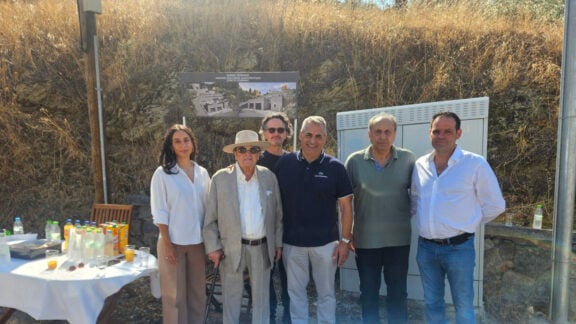Greece has been put on red alert ahead of the arrival of an extreme weather front dubbed “Ballos” (meaning to dance and jump) which is expected to bring with it heavy rainfall and thunderstorms along with hail and a drop in temperature.
The severity of the expected storm has prompted the country’s Civil Protection to call an emergency teleconference with 13 regional governors warning them that all agencies must be on high alert to immediately respond to problems that may arise as a result of the storm.
Greece’s National Meteorological Service (EMY), which issued the red alert, forecast intense rainfall on Tuesday evening in north-eastern Greece followed by a lull.
The front is then expected to approach Greece from the West-South-West on Wednesday night or the early hours of Thursday initially affecting the Ionian islands, Epirus and Macedonia with heavy rain and strong north winds as it moves eastwards to affect the whole country by Friday. A temperature drop of up to 7°C is also expected throughout the country.
The effects of “Ballos” are likely to continue to be felt until Saturday, 16 October.
READ MORE: Austrians send aid to fire-ravaged Evia communities
Meanwhile, Greek newspaper “Kathimerini” reported that ongoing preparations ahead of the onset of autumn rains and the coming weather front are in high gear on the fire-ravaged island of Evia. The northern part of the island experienced flooding on October 10.
Crews of workers have been chopping down burnt pine trees and to create barriers against flooding. Vegetation that would normally absorb rainfall and reduce run-offs was burnt in fires that ravaged much of Greece in August.
According to figures released by National Observatory in Athens, the fires ravaged 300,000 acres (121,406 hectares) of Greece’s forest and bushland with the northern part of the island accounting for one third of the total – 115,106 acres (46,582 hectares).
Near the coastal village of Limni, where people had to be evacuated by boat in August, green shoots have emerged as a sign that the forest will re-grow over time. However traditional crafts of resin gathering, beekeeping and logging that relied on the forest may take a long time to recover.
The island produced 6,000 tonnes of resin which accounted for 85% of Greece’s total output. The resin from the trunk of pine trees is used to make durable casting and flooring.
The Greek government has called on topographical engineer Stavros Benos to set out a plan that will speed the re-growth of the forest and help the island’s recovery.
“A new forest should be the focal point of the reconstruction. If we don’t win the forest back we will lose everything,” said Mr Benos.








